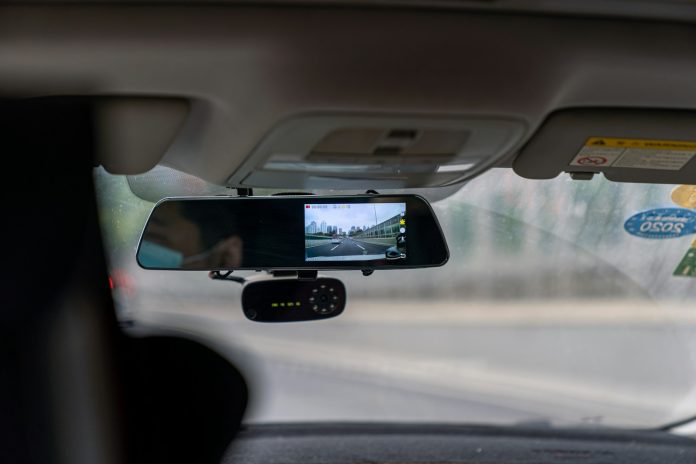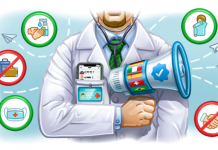Dashcams have gone from being a novelty item to a necessity for many drivers. These small devices, which cost between $50 and $700, are not just about recording scenic drives or capturing quirky road incidents. They play a critical role in ensuring justice, safeguarding legal rights, and providing clarity in situations where uncertainty might otherwise prevail.
Let’s explore how having a dashcam in your car can serve as your silent witness and legal ally, offering protection and peace of mind.
The Unbiased Witness in Accidents
Imagine this: you’re driving home on a rainy evening when another vehicle rear-ends you at a traffic light. The driver claims you stopped suddenly, causing the collision. In a “he said, she said” situation, the blame game often leaves innocent parties vulnerable, especially when witnesses are unavailable.
This is where a dashcam becomes invaluable.
In the US, the annual number of car accidents has risen steadily since 2011. It’s natural that not all of these accidents taking place on the roads will have neutral or unbiased witnesses. A dashcam records the moments leading up to, during, and after an accident.
Take this incident from St. Louis as an example. A man was changing a flat tire on his car when he was suddenly hit by a truck. Truck accidents are not that uncommon in the US. In fact, according to TorHoerman Law, a steady increase in the number of trucking accidents has been seen in St. Louis over the years.
Now, what if this particular truck accident didn’t have any witnesses? A St. Louis trucking accident lawyer might have taken up the case to seek justice for the victim, but where’s the evidence? With no witnesses, truck accident claims like this might be ignored.
Dashcam recordings can be submitted as evidence to your insurance company, the police, or even the courts to prove fault. Unlike human witnesses, who may be unavailable or biased, a dashcam presents an impartial account of events, ensuring that the truth is laid bare.
Protecting Yourself from False Claims
Unfortunately, not everyone on the road is honest, and false claims after an accident are more common than most people realize. Fraudulent activities, such as staged accidents or exaggerated injury claims, can leave unsuspecting drivers entangled in costly legal battles and inflated insurance premiums.
A dashcam can protect you by providing indisputable evidence that counters these deceitful claims.
For instance, let’s say a driver purposefully cuts in front of you and slams on the brakes. A dashcam recording can clearly show the reckless maneuver. By capturing these events in real-time, the footage ensures that fraudulent claims are exposed and the responsible party is held accountable.
Shielding Yourself Against Traffic Violations
Even the most cautious drivers sometimes find themselves pulled over by law enforcement for alleged traffic violations they didn’t commit. A police officer might claim you ran a red light or failed to yield at an intersection. Without evidence to the contrary, such allegations can lead to fines, points on your license, or even court appearances.
A dashcam can serve as your personal proof in such situations. By reviewing the footage, you can confirm whether the accusation is valid or mistaken. If the recording shows you adhered to traffic rules, you can present this evidence in your defense.
Is it legal to use a phone as a dash cam?
Using a phone as a dashcam is legal in many places, but it must be mounted securely to avoid obstructing your view. Hands-free operation is essential to comply with distracted driving laws. Check your local regulations, as rules on mounting and usage can vary by region.
Assisting Vulnerable Drivers
For young or inexperienced drivers, dashcams offer an extra layer of security. Parents, for instance, often worry about their teens navigating busy roads for the first time. A dashcam can provide reassurance by monitoring driving habits and recording any incidents.
In addition, rideshare drivers or delivery workers who spend hours on the road are more exposed to risky situations. For them, a dashcam isn’t just a tool; it’s an essential safeguard against disputes with passengers, other drivers, or even law enforcement.
Recording Hit-and-Run Incidents
Few situations are as frustrating as being the victim of a hit-and-run accident. Without identifying the responsible party, you’re often left to shoulder repair costs and navigate insurance claims alone.
A dashcam equipped with front and rear cameras can capture critical details. These include the license plate number and make of the fleeing vehicle, increasing the chances of locating the perpetrator.
Even when you’re not in the car, some dashcams offer parking mode, which records footage when motion or an impact is detected. This feature is especially useful for protecting your vehicle in parking lots, where hit-and-run accidents often occur.
Supporting Pedestrian and Cyclist Safety
Did you know in the US, every day, 20 people walk outside and end up getting killed by a moving vehicle? Dashcams don’t just protect drivers; they can also serve as allies for pedestrians and cyclists.
In crowded urban areas where interactions between vehicles and non-motorists are frequent, conflicts can arise. A pedestrian might claim you failed to yield at a crosswalk, or a cyclist might accuse you of cutting them off.
With dashcam footage, you can provide an accurate account of the incident, ensuring that misunderstandings or false accusations don’t escalate into legal trouble. In this way, dashcams contribute to fostering accountability and fairness for all road users.
Simplifying Insurance Claims
Navigating the aftermath of an accident often involves lengthy insurance claims processes, which can be both stressful and time-consuming. Having dashcam footage streamlines this process by providing irrefutable evidence of what occurred. Insurers are more likely to process claims quickly when presented with clear, indisputable recordings.
Furthermore, some insurance companies offer discounts to policyholders who use dashcams, recognizing the value these devices bring in minimizing disputes and expediting resolutions. Over time, this added benefit can lead to significant savings, making a dashcam a cost-effective investment.
Does having a dashcam affect your insurance?
Having a dashcam can positively impact your insurance, as it provides evidence in case of an accident, potentially speeding up claims and proving fault. Some insurers offer discounts for dashcam usage, recognizing its value in preventing fraud. However, it doesn’t automatically lower premiums, and benefits vary by provider.
Preserving Your Legal Rights in Unusual Scenarios
Sometimes, situations arise on the road that are out of the ordinary, such as altercations with aggressive drivers or encounters with law enforcement. In these cases, a dashcam provides an objective record of what transpired, protecting your rights.
For example, if you’re involved in a road rage incident where another driver behaves aggressively, the dashcam can capture crucial evidence to support your case. Similarly, if you feel you were treated unfairly during a traffic stop, the footage can provide an unbiased account of the interaction.
Is it safe to leave a dashcam in your car?
Leaving a dashcam in your car is generally safe, but precautions are needed to prevent theft or overheating. Use a discreet installation or remove it when parked in high-theft areas. If the dashcam has a battery, avoid exposure to extreme heat to reduce risks of damage or fire.
Your Silent Guardian on the Road
In today’s unpredictable driving environment, a dashcam is more than just a gadget; it’s your silent guardian. By recording your journeys, it safeguards your legal rights, protects you from false claims, and offers peace of mind in the face of uncertainty.
Whether you’re commuting to work or embarking on a road trip, a dashcam ensures that the truth is always on your side. With a dashcam as your witness, you can drive confidently, knowing that your actions and your rights are protected.



